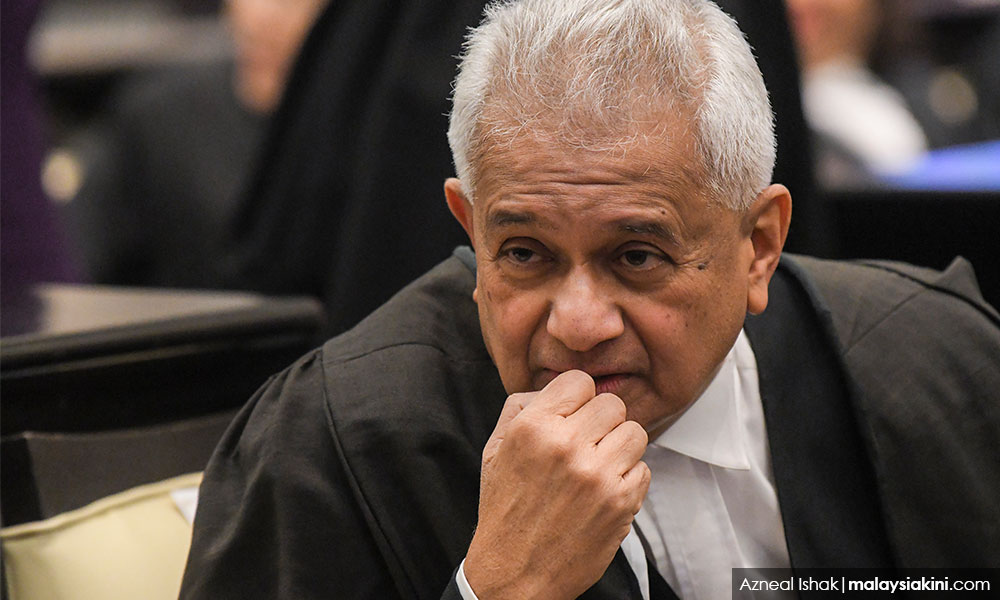Malaysians woke up on the morning of March 1 to news that the country has to pay US$14.92 billion (RM62.59 billion) to descendants of the last Sulu sultan.
More bemusement followed with the reaction of the Malaysian government indicating they would challenge the validity of the ruling by Spanish arbitrator Gonzalo Stampa.
In this Kiniguide, we take a closer look at the background of the issue that began almost 150 years to the time of colonial Borneo.
Q: What is the 1878 agreement that formed the basis for the arbitration ruling?
A: The 1878 “treaty” was an agreement that led the then Sultan of Sulu, Sultan Jamal Al Alam, to cede Sabah (then known as North Borneo) to the Dent & Overbeck Company.
The agreement was signed by the Sulu sultan and German-born adventurer Baron Von Overbeck, who was then North Borneo maharajah and had a role in the company.
Another signatory was British businessperson Alfred Dent, who with his brother Edward Dent acted as financiers for the joint venture.
Following the agreement, the company acquired territorial rights over North Borneo and rights to its mineral resources.
In return, the joint venture was to pay annual cession money of US$1,000 to the sultan.
The terms of the agreement were later passed to Malaysia in 1963 when Sabah joined Sarawak and Malaya to form the Federation of Malaysia.
Up to 2013, Malaysia had been making RM5,300 annual payments to the Sulu sultan's heirs, via the Philippine administration.

Q: What caused the Sulu sultan’s descendants to seek Spanish arbitration?
A: The royal heirs sought Spanish arbitration in July 2019, after Malaysia stopped making the annual RM5,300 payment since 2013.
The payments were stopped after the intrusion into Lahad Datu, Sabah by an armed group from southern Philippines earlier that year.
The militants claimed to be linked to the Sulu sultanate, which was used as a reason for the Malaysian administration's cessation of payments.
However, according to Tommy Thomas, there appeared to be no evidence of such links.
In his memoir My Story: Justice in the Wilderness, the former attorney-general claimed the Malaysian government's cessation of payments would be costly as there were no legal grounds to justify such action.
The present royal heirs claimed Malaysia breached the 1878 treaty by ceasing the annual payments.
Q: How did the Spanish arbitrator arrive at RM62.59 billion when the annual payments were merely RM5,300 a year?
A: According to Thomas, the heirs' lawyers were alleged to have sought reinterpretation of the 1878 treaty to amend the status of Sabah as a leased territory rather than a ceded one.
In his memoir, Malaysia's former top lawyer claimed that the heirs' legal team sought this adjustment to reflect the value of Sabah's oil and gas revenue since the 1970s.
"According to the claimants, they should be paid 'some three million times greater than the annual amount called for' or an equally proportioned lump sum in exchange for terminating the agreement and ceding their sovereignty over Sabah," Thomas claimed.

Q: Why did the Sulu sultan's heirs file for arbitration in Spain rather than Malaysia?
A: According to Thomas' memoir, the Sulu sultan’s descendants initially sought the British government's help to appoint an arbitrator in the dispute.
However, he noted that the UK administration rebuffed the request, leading the heirs to turn to Spain instead.
“The 1878 agreement provides that any dispute 'shall be submitted to Her Britannic Majesty’s Consul-General for Borneo'. That office disappeared upon the formation of Malaysia.
“The only possible link to Spain was that for a short period between 1878 and 1885, Spain had some rights over North Borneo, which were passed over in 1885 to Great Britain.
“Since there was no arbitration agreement in the 1878 and 1903 documents, the Sulu claimants applied to the courts in Spain, which appointed a Spanish arbitrator to determine a dispute between Philippine citizens and Malaysia, pertaining to agreements dealing with land in Malaysia and payments by Malaysia in ringgit," Thomas penned.
Q: Can the Sulu sultan's heirs actually enforce the arbitration ruling against Malaysia?
A: In theory, this is possible via the implementation of the New York Convention, of which both Malaysia and Spain are members.
In the event that Malaysia refuses to pay the RM62.59 billion, the heirs have the right under the convention to enforce the award via seizure of Malaysian assets located in any of the 167 signatory countries.
Q: What has the Malaysian government been doing in response to the 2019 arbitration bid?
A: The Malaysian administration brought an action to restrain eight alleged Sulu sultan heirs from proceeding with the said arbitration.
This led to the Sabah High Court ruling in 2020 in favour of Malaysia, stating that there was no binding agreement between Malaysia and the descendants that could compel either of them to submit to the arbitration.

The Sabah court also issued a restraining order to prevent the descendants from commencing with their arbitration bid in Spain.
According to Thomas' memoir, the Malaysian government was in the midst of filing the Sabah court order in Spain during his final days in office in early 2020.
Q: What is the basis for Malaysia's refusal to pay the RM62.59 billion arbitration award?
A: Putrajaya has declared the Spanish arbitration ruling a breach of Malaysia's sovereign immunity.
The Malaysian government claimed that the award is null and void due to questions about the fitness of Stampa to hear the arbitration proceedings.
“The government of Malaysia will continue to take all necessary actions including legal actions to put an end to the claim and to ensure that Malaysia’s interests, sovereign immunity, and sovereignty are protected and preserved at all times,” said Wisma Putra and the Attorney-General's Chambers (AGC).
Q: Why was Malaysia absent from the Spanish arbitrator proceedings conducted in Paris?
A: The Malaysian administration contended that this was because it does not recognise the claim.
The government also contended that the dispute is not subject to arbitration as the 1878 agreement was never a commercial contract.
The Malaysian administration also expressed doubts on the identities of the royal claimants and claimed they are unverified.
Q: If the arbitration was conducted by a Spanish arbitrator, why was it heard in Paris?
A: According to Wisma Putra and the AGC, the case was originally heard in Madrid until the High Court there voided Stampa's appointment.
It was allegedly done on grounds that Malaysia was not properly notified about the matter.
The claimants then moved their case to the French capital. - Mkini



No comments:
Post a Comment
Note: Only a member of this blog may post a comment.